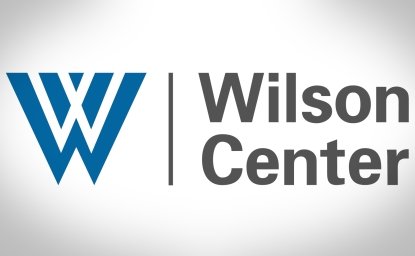By Michael Adler, Public Policy Scholar
The UN nuclear watchdog agency has reached a dead end in getting Iran to allay fears it seeks atomic weapons, the International Atomic Energy Agency (IAEA) reports.
Iran continues to amass fissile material in defiance of UN Security Council resolutions calling on it to suspend uranium enrichment, which is a possible route to making the bomb. Iran is now almost halfway to producing the 1,500 kilograms of uranium needed to fabricate a bomb under conservative estimates, and it should amass this quantity by next year. The 630 kilograms that the IAEA reports Iran has already enriched are theoretically enough to make a bomb, but experts believe more is needed for a first try.
The low-enriched uranium would still have to be refined further and weaponized in order to build a bomb, and Iran protests vehemently that suspicions it intends to do this are unfair, that it only seeks the uranium as fuel for a civilian energy program. The international community has however called on Iran to stop enriching. Iran is not only continuing this strategic work but also perfecting its ability to do it.
Meanwhile, the diplomatic process has stalled with no progress on a compromise or "face-saving" solution. Iran perhaps feels emboldened as Russia and China, which both have extensive trade with the Islamic Republic, are blocking UN sanctions tougher than those Iran now faces. The greatest pressure on Iran is accidental, the plummeting price of oil that cuts into the petroleum giant's revenues.
But there seems to be little possibility for the West to take advantage of this pain with sanctions that would truly bite. One measure discussed is getting countries like India and Gulf states to stop sending Iran the refined gasoline it needs to keep its economy turning, but these nations do not want to lose the lucrative trade. There is, in addition, an overall wariness about inciting an oil price hike that would worsen the already disastrous world economic crisis.
Finally, despite President Bush's assertions, the prevailing sentiment is that military action is off the table at this point, as diplomacy must still be given a chance.
Indeed, from a policy standpoint, all is on hold until the new administration of U.S. President-elect Barack Obama moves in. But diplomats worry the Iranians will use Obama's inevitable learning curve in this complex situation to gain more time to run and improve its uranium-enriching centrifuges.
The bottom line is that Iran has been winning time since the current crisis began in 2002, with revelations that Tehran was carrying out secret nuclear work. So-called "red lines" that were expected to trigger a showdown have evaporated over the years. And the reddest line to date – accumulating enough fissile material to start the process of making a bomb – is now expected to be passed without the confrontation escalating into a radically different kind of face-off.
The IAEA also reports that the agency is blocked in its investigation of "alleged studies." These are documents, acquired by the United States and said to be Iranian, that allegedly prove Iran carried out nuclear work with military applications. The report, issued Wednesday by IAEA chief Mohammed ElBaradei, says that "regrettably, as a result of the lack of cooperation by Iran in connection with the alleged studies and other associated key remaining issues of serious concern, the Agency has not been able to make substantive progress on these issues." ElBaradei calls on Iran "to clarify the extent to which information contained in the relevant documentation is factually correct and where, in its view, such information may have been modified or relates to non-nuclear purposes."
As for enriching uranium, which produces what can be either fuel for civilian power reactors or material for atom bombs, ElBaradei writes: "Contrary to the decisions of the Security Council, Iran has not suspended its enrichment related activities" and has continued "the installation of new cascades (of centrifuges) and the operation of new generation centrifuges for test purposes."
Additionally, "Iran has not provided access to the IR-40, and, therefore, the Agency is not able to verify the current status of its construction," ElBaradei says, referring to a heavy-water reactor being built in Arak that would be able to produce plutonium, another possible atom bomb material.
In a second report Wednesday, ElBaradei reviewed the IAEA's efforts to monitor a site in Syria destroyed by an Israeli attack last September. Israel believed the site was a nuclear reactor secretly under construction, which Syria denies. The IAEA has found uranium particles at the site, which Syria says were depleted uranium from Israeli missiles. However, they also could have been from fuel being readied to load into the reactor, diplomats told this scholar. The diplomats said that whatever the facts, the Syrian investigation is beginning to resemble the Iranian one, with the IAEA hindered in its inquest but still coming up with dramatic data that begs more questions.
A different wrinkle in the Syrian case is that this nuclear issue arises at a time when Israel is talking to the Syrians in a bid for peace. Not surprisingly then, Israel and the United States have been relatively restrained in crying foul over Syria's suspected nuclear work.
The opinions expressed here are solely those of the author and in no way represent the views or opinions of the Woodrow Wilson International Center for Scholars.


